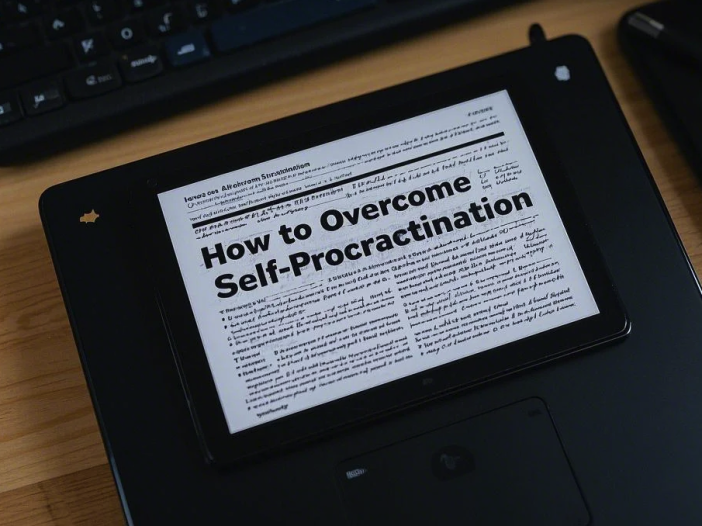
Procrastination can feel like an unwelcome companion in our daily lives, lurking in the shadows and holding us back from achieving our goals. For many, the struggle is real whether it’s deadlines that loom closer, projects that remain untouched, or aspirations that seem perpetually out of reach.
Fortunately, understanding and tackling self-procrastination is achievable, and cultivating a productive mindset is within your reach. In this post, we will explore powerful strategies to help you conquer procrastination and boost your productivity.
Understanding Procrastination
Before we can tackle procrastination, we must first understand its nature. Procrastination is not simply a matter of poor time management; it’s often rooted in fear, perfectionism, or a lack of motivation.
Identifying the reasons behind your procrastination is the crucial first step. Ask yourself: What tasks do I avoid, and why? By digging deep to unearth these underlying causes, you can begin to formulate an effective strategy to combat them.
Setting Clear and Achievable Goals
One of the most effective ways to counteract procrastination is by setting clear and achievable goals. Instead of having a vague idea of what you want to accomplish, break down tasks into smaller, manageable steps.
This not only makes the work less daunting but also provides you with a sense of direction. Try using the SMART criteria Specific, Measurable, Achievable, Relevant, Time-bound—to structure your goals effectively. This clarity can ignite motivation and inspire action.
Implementing Time Management Techniques
Time management is a vital skill in overcoming procrastination. Techniques such as the Pomodoro Technique where you work in short, focused bursts followed by brief breaks can significantly enhance productivity.
Set a timer for 25 minutes and immerse yourself fully in the task at hand, followed by a 5-minute break to recharge. This method can help combat the feelings of overwhelm and allows you to keep your focus sharp.
Creating a Conducive Environment
Your environment plays a significant role in your productivity levels. Declutter your workspace, remove distractions, and create an atmosphere that promotes focus.
This could mean turning off notifications on your devices, organizing your desk, or even curating a playlist that boosts your concentration. By shaping your surroundings, you set yourself up for success and reduce the temptation to procrastinate.
Practicing Self-Compassion and Mindfulness
Procrastination can lead to feelings of guilt and self-doubt—further fueling the cycle. It’s vital to practice self-compassion when you find yourself slipping into old habits. Remind yourself that everyone struggles with procrastination at times.
Incorporating mindfulness techniques, such as meditation or deep-breathing exercises, can help calm anxiety and refocus your thoughts. This mental clarity allows you to approach tasks with a renewed and positive mindset.
Building Accountability
Having someone to hold you accountable can be a game-changer in your battle against procrastination. Share your goals with a friend, family member, or colleague, and set regular check-ins to discuss progress. Alternatively, consider joining a study or accountability group where members motivate one another to stay on track. This external support can provide the encouragement you need during moments of doubt or distraction.
Conclusion
Overcoming self-procrastination is not merely about finding the willpower to push through tasks; it’s about embracing a mindset that values productivity while remaining compassionate towards yourself.
By understanding your triggers, setting achievable goals, mastering time management, creating an ideal workspace, and seeking accountability, you can unlock your potential and achieve your aspirations. Remember, every small step you take towards overcoming procrastination is a victory in itself.

Leave a Reply